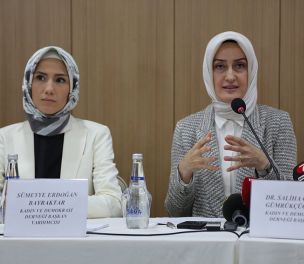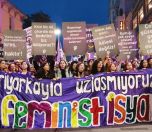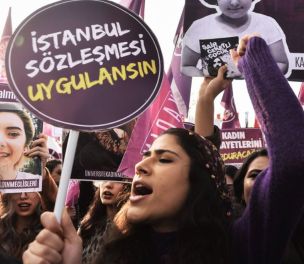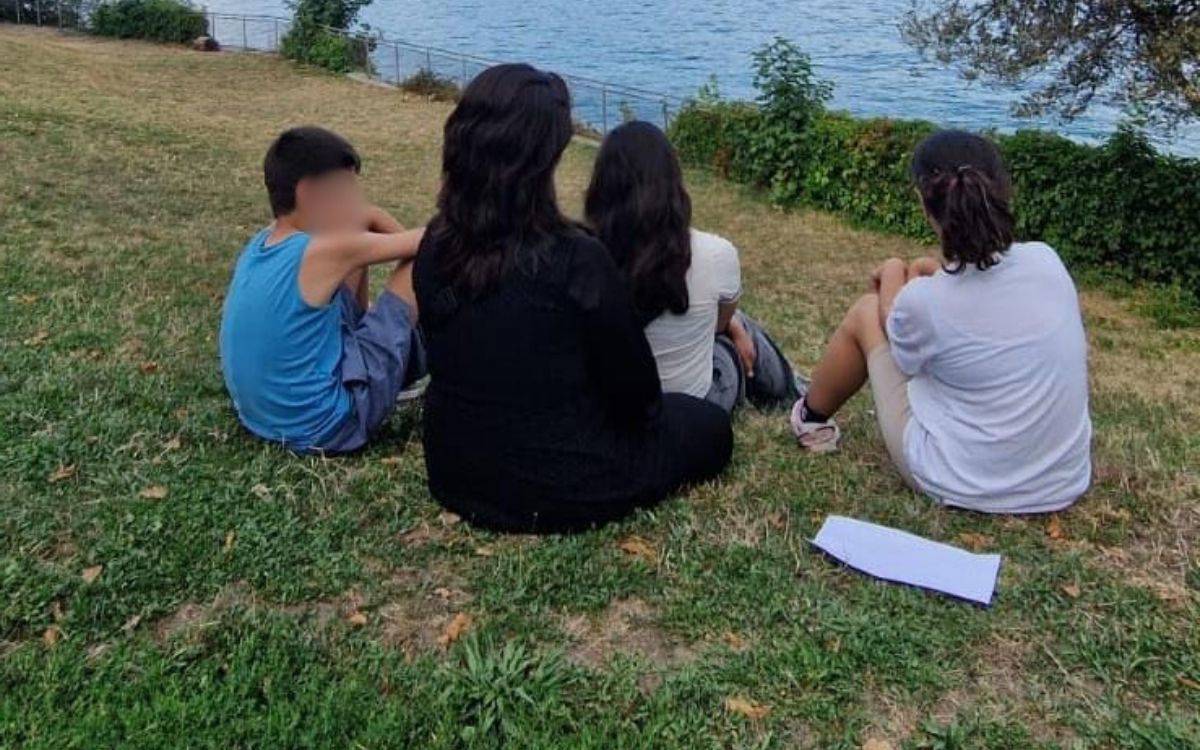Click to read the article in Turkish
President and ruling Justice and Development Party (AKP) Chair Recep Tayyip Erdoğan first said, "We will abolish it if the people wants it." Then, he announced that the decision as to the İstanbul Convention would be shared with the public on August 5, 2020.
The preparation phase of the Convention was pioneered by the Women's Movement of Turkey. It was also signed in İstanbul, it is actually for that reason that the Convention on Preventing and Combating Violence Against Women and Domestic Violence is called İstanbul Convention.
In other words, the allegations that the Convention "is neither national, nor local" are not well-grounded in any way at all.
The witnesses of the time and the "architects" of the Convention have spoken to bianet about August 1, 2014, when the Convention entered into force, and about the importance of the Convention.
Let's listen to main opposition Republican People's Party (CHP) MP Aylin Nazlıaka, European Women's Lobby (EWL) Coordinator for Turkey Dr. Selma Acuner and academic Dr. Eylem Ümit Atılgan from the Department of Law Philosophy and Sociology at the University of Kyrenia.
Nazlıaka: The Convention is our compass
"There was a festive air at the Parliament. At that time, only four parties had groups at the Parliament. If we list them by their number of MPs, they were the AKP, CHP, MHP and HDP. In the 24th term of Parliament, there was a single legislation that all four political parties agreed on: İstanbul Convention.
"Women MPs from all parties took the floor and expressed how proud they were for being the first signatories of the Convention.
"We, as the MPs of the opposition, underlined that women's right to equality could not be ensured solely by putting our signatures under this Convention, the real process had just begun and the Convention would have only a symbolic meaning if its obligations were not fulfilled.
"As the time passed, we frequently criticized the AKP government for failing to abide by the provisions of the Convention, but there was no such irrational environment where abolishing the Convention was discussed. İstanbul Convention has always been the compass of our struggle for equality.
"We have seen this Convention as the document of women's right to life and we have insistently laid claim to it. At times, we heard statements made through pro-government media outlets or representatives from religious communities, suggesting that Turkey might perhaps withdraw from the Convention, but we regarded them as empty talk.
"As a matter of fact, AKP's women executives and the KADEM, the Women's association founded by President Erdoğan's daughter Sümeyye, objected to those irrational statements.
'Right to life is the most fundamental right'
"Then, last year, Prof. Aşkın Asan, the Principal of Tenzile Erdoğan Girls' Anatolian Religious Vocational High School, was nominated as the 'only candidate' to the Presidency of GREVIO, the mechanism monitoring and inspecting the implementation of the Convention, rather than Prof. Feride Acar, one of the persons who wrote the Convention and the then President of GREVIO. So, this showed us the direction. We found ourselves in these ridiculous debates for the last year. What a pity!
"The AKP has unfortunately fallen in a well of religious communities, it is struggling there. The right to life is a human's most fundamental right.
"While our sisters are massacred before our very eyes everyday, while they are struggling to breathe, withdrawing from İstanbul Convention, which is a life savior for women, means supporting the massacre of women.
'We will not compromise our rights'
"This decision is like saying, 'I don't believe in the equality of women and men, it is against human's creation.' We, women, will of course not allow it. We will of course not compromise our acquired rights. We extend our hands to AKP's women as well: This struggle belongs to us all!
Atılgan: Only the Parliament can decide
"If the contracting state says, 'I withdraw from the Convention,' it will withdraw three months later and this process does not require the approval of other contracting states or the Council. A notification is enough.
"It is not possible to express a reservation or attach an explanation at this stage. It could have been done in the beginning.
"Moreover, the debated article, I mean the 4th Article, is not one of the articles that a state shall express a reservation about. Therefore, it is only possible to withdraw from the Convention.
"When it comes to the withdrawal from the Convention in terms of domestic law: As per the most recent Constitutional amendment, the President is not authorized to issue a decree on 'fundamental rights and freedoms'.
"So, it does not seem possible that Turkey can withdraw from the Convention with a decree by the President. Parliament is authorized to do it.
"The price to be paid for withdrawing will of course be felt in international politics, rather than international law. We will see what kind of reactions will be made by the European Union (EU) and Council of Europe (CoE).
'Will discrimination be allowed if we withdraw?'
"The principal provisions of the İstanbul Convention are already Constitutional principles. If what they want to circumvent is the prohibition of discrimination, the Constitution has it, too. Based on such a mentality, they have to change the Constitution as well.
"The issues allegedly causing distress are not limited to the Convention, so they cannot just say, 'We have dealt with it' when the Convention is abolished. There is the Constitution and it is still in force!
"As a legist, I have difficulties in understanding what they think: Do they think that if we do not name gender, sexual orientation and gender identity, will discrimination based on them be allowed?"
Acuner: Society precedes the politics
"I do not find it likely that İstanbul Convention will be abolished. We know how much the ones who want to repeal it now laid claim to it when it was first signed. (...) Society always precedes the politics and we know that, apart from a handful of misogynists, the society does not want that women and children are subjected to violence.
"When the Convention was being written, the Women's Lobby in Brussels was active and we expressed our opinions through the Women's Movement in Turkey and Women's Lobby in Turkey.
"We were in contact with Prof. Feride Acar. The opinions of women from Turkey were added. Withdrawing from this Convention means giving free passage to violence against women of Turkey. I do not even want to think that something like that will happen. I believe society precedes the politics."
About İstanbul Convention
* Source: CoE The Council of Europe (CoE) "Convention on Preventing and Combating Violence Against Women and Domestic Violence", also known as "İstanbul Convention", is based on the understanding that violence against women is a form of gender-based violence that is committed against women because they are women. It is the obligation of the state to fully address it in all its forms and to take measures to prevent violence against women, protect its victims and prosecute the perpetrators. As of March 2019, it has been signed by 45 countries and the European Union (EU). On March 12, 2012, Turkey became the first country to ratify the Convention, followed by 33 other countries from 2013 to 2019 (Albania, Andorra, Austria, Belgium, Bosnia and Herzegovina, Croatia, Cyprus, Denmark, Finland, Estonia, France, Georgia, Germany, Greece, Iceland, Ireland, Italy, Luxembourg, Malta, Monaco, Montenegro, the Netherlands, Norway, North Macedonia, Poland, Romania, Portugal, San Marino, Serbia, Slovenia, Spain, Sweden, Switzerland). The Convention came into force on 1 August 2014. * Click here to read the full convention |
(EMK/SD)
*İstanbul Convention - Pınar Gültekin illustration by Aslı Alpar





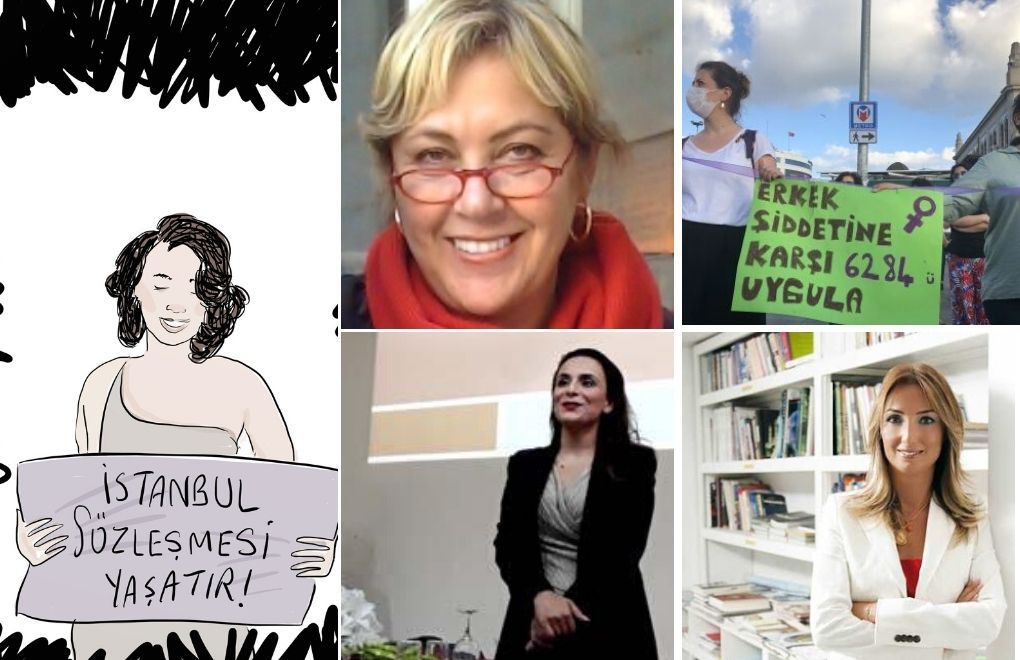

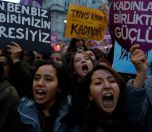

sa.jpg)
